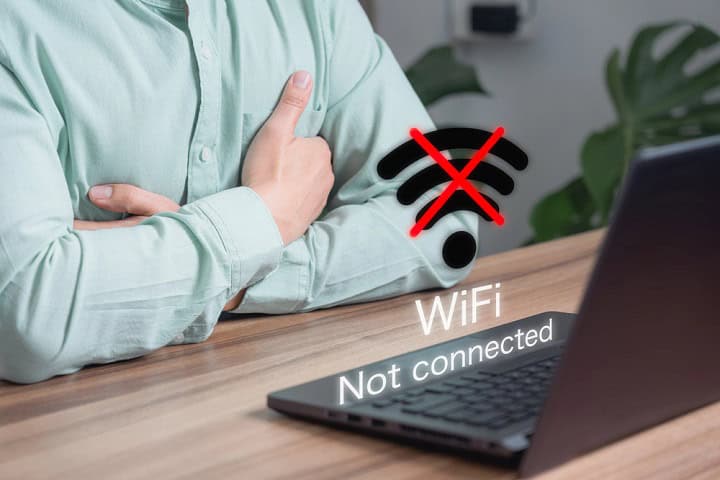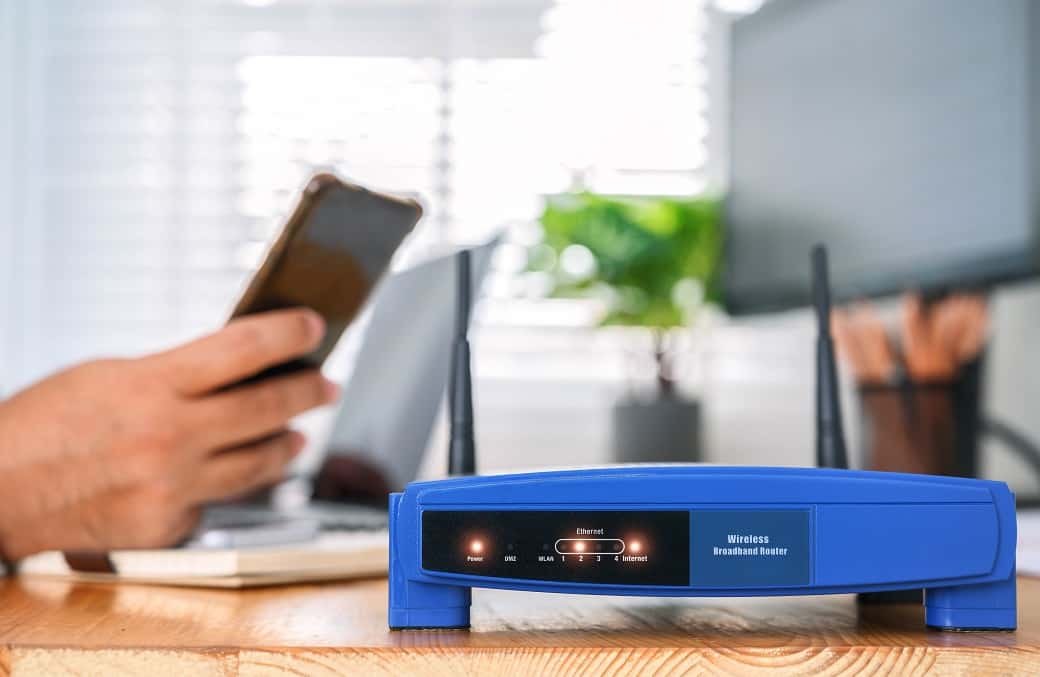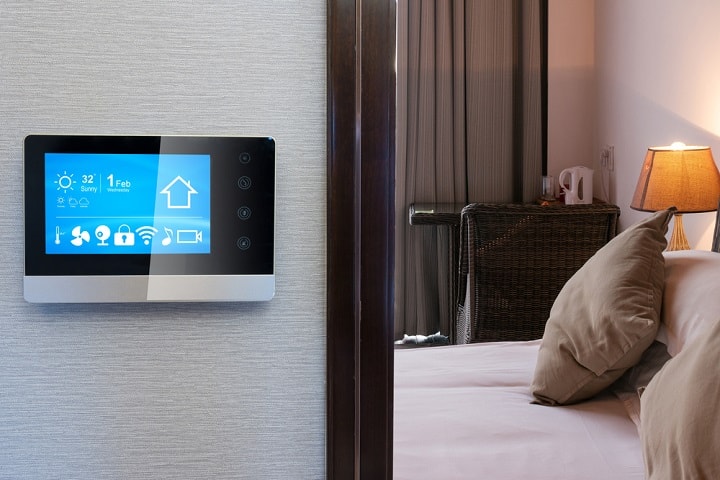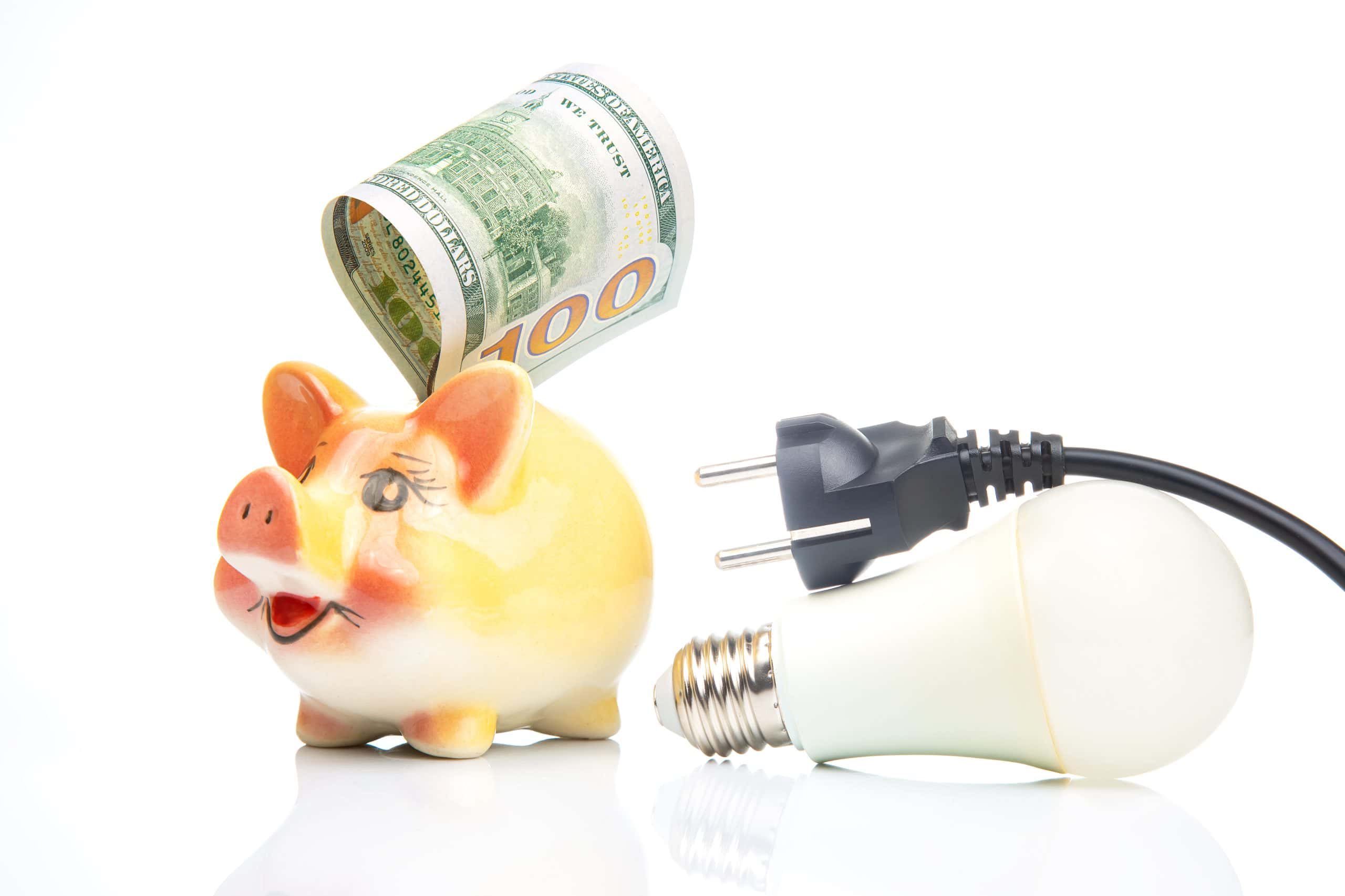Hey there! Imagine this: you’re trying to turn on the lights using your smart home system, when suddenly, your internet goes out. Next thing you know, you’re stuck sitting in the dark. For most smart home systems, loosing internet means that your smart home won’t work. Frustrating, right? Well, fear not! In today’s blog post, we’re going to dive into the world of smart homes and explore how to handle unexpected internet outages and how to keep your home working even if you don’t have internet. So, if you’re interested in finding out how to keep your smart home running smoothly during an internet outage, you’ve come to the right place. Let’s get started!
Why the Internet Matters for most Smart Homes
In today’s digital age, our homes are becoming smarter and more connected than ever before. From controlling the lights and temperature to managing security systems and appliances, smart home technology has revolutionized the way we live. Most smart home devices leverage the internet as a way to communicate and be controlled. Without the internet, your Alexa Echo, Google Home, or other fancy internet based smart home hub is just a decoration. Your lights, plugs, and other devices that use the internet to communicate won’t be reachable via the app. Without the internet, most smart home devices are no more than fancy paperweights.
How to Prepare your Smart Home for a No Internet Scenario
That said, there are ways to prepare your smart home for an internet outage or other incident that makes the internet unusable. This could range from having a secondary internet connection to designing your home for complete local control.
One way to prepare for an internet outage is to have a secondary internet connection as a backup. This could be a mobile hotspot, a separate broadband connection, or a cellular router. Having an alternative source of internet can keep your smart home devices online, allowing you to continue controlling them and receiving important notifications. However, having two internet connections can be expensive for some folks, especially if you normally have a pretty stable internet connection or are working on a tight budget. There’s also pretty steep technical know-how needed to seamlessly switch from one internet service provider ( ISP ) to another in case of failure. You don’t want to be manually joining all of your devices to a new Wifi network or have to manually configure modem or router settings just because your internet is down for a few minutes.
An easier way to prepare for an internet outage ( and the one we recommend ) is to set up local control options for your smart home devices. Many smart home systems and devices offer the ability to control them locally, without relying on an internet connection. This can be done through a local Wi-Fi network or even a dedicated smart home hub that operates independently. By enabling local control, you can still operate your smart home devices even when the internet goes down. Keep in mind though that Google Home, Alexa, and other smart home hubs can be heavily internet dependent and may not work without having an internet connection. For a completely local smart home hub, we recommend something like Home Assistant.
Finally, it’s crucial to have a plan in place for manual control. Every system in your home ( or at least the critical systems ) should have a way to manually control and override them. Make sure you have alternative means of controlling temperature, lighting, and security, such as traditional thermostats, light switches, and physical locks. This will keep you from being locked out (or in ! ) your house in case of an internet outage.
FAQ
Can my smart home devices still function during an internet outage?
Some of your smart home devices can still function during an internet outage and others will probably experience drastically reduced functionality. While many smart home devices rely on an internet connection to operate fully, there are certain devices that can still work independently. For example, smart lights that have physical switches or smart plugs with manual controls can still be used to turn on and off lights or appliances. Additionally, smart locks with keypad entry can still be accessed with a PIN code. However, it’s important to note that devices that require real-time data or remote access, such as security cameras or voice assistants, may not function properly without an internet connection. It’s always a good idea to check the specific capabilities of your smart home devices to understand their offline functionality.
Is it possible to use my smart home devices offline without any internet connection?
It is possible to use some smart home devices offline without any internet connection. This would depend entirely on the smart home device, your home network setup, and the device manufacture. Most smart home devices rely on an internet connection to communicate with each other and with your smartphone or tablet. However, some smart home devices have local control capabilities that would allow them to work without internet. For example, certain smart light bulbs can still be turned on and off manually or via a local smart home hub even if the internet is down.
Are there any limitations or functionality changes when using smart home devices without internet access?
Yes, there are usually limitations and functionality changes when using smart home devices without internet access. Most smart home devices heavily rely on an internet connection to function properly. Without internet access, you won’t be able to control most smart devices at all! For devices that are capable of being controlled without internet access, normally you give up both voice controls and remove control capabilities. Additionally, features like live streaming on security cameras, weather updates on smart thermostats, and voice commands on smart speakers may not work. However, some smart home devices, such as certain smart light bulbs or locally controllable smart locks, can still be operated manually or through a local network connection.
Can I use my smartphone as a backup internet connection for my smart home devices?
Yes, you can use your smartphone as a backup internet connection for your smart home devices. Many smartphones have a built-in feature called “mobile hotspot” or “tethering” that allows you to share your phone’s internet connection with other devices. However, keep in mind that using your smartphone as a backup internet connection may consume a significant amount of data, so it’s important to monitor your data usage if you have a limited data plan. Additionally, the speed and stability of your smartphone’s internet connection may not be as reliable as a dedicated internet service provider, so it’s advisable to have a backup plan in case of prolonged internet outages.
If you do decide to use your cellphone as a backup internet connection via the mobile hotspot, we recommend setting the SSID and the password of your phone’s hotspot to the same as your local home network so that your devices connect to the phone automatically. Otherwise, you’ll be stuck manually pairing each device to your phone’s hotspot. Just be sure to turn the hotspot off when your internet turns back on!
In Summary
Thank you for taking the time to read about how to prepare for an internet outage with a smart home. We hope that the information we provided has been helpful in guiding you towards setting up a reliable and efficient smart home system that can withstand internet outages. Remember, being prepared is key, and having a smart home that can still function seamlessly even without an internet connection can provide peace of mind. Stay connected to our blog for more insightful content and tips on how to make the most of your smart home technology.




